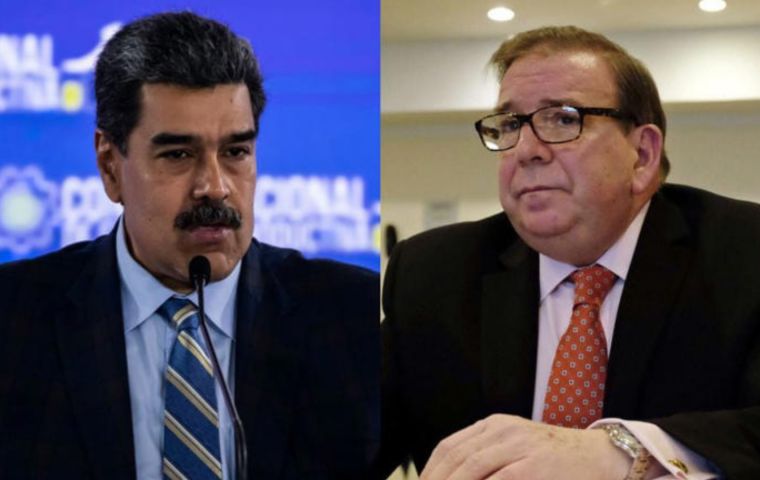MercoPress. South Atlantic News Agency
Uncertainty on Venezuelan elections' outcome
 Pollsters usually overrate Maduro's challengers, many experts concurred
Pollsters usually overrate Maduro's challengers, many experts concurred Seven days before the general elections in which President Nicolás Maduro seeks another term in office, Agência Brasil reported that polls would be unable to forecast a clear winner. While many regard opposition candidate Edmundo González Urrutia as the favorite, other surveys find Maduro ahead.
Research institutes such as Datincorp, Delphos, and Meganálisis, among others, claim González Urrutia from the Democratic Unity Table (MUD) would lead most polls given the support he has from María Corina Machado, who won the opposition primaries but was disenfranchised on judiciary grounds.
On the other hand, Cmide (Centro de Medición de Datos Estadísticos), Hinterlaces, and International Consulting Services (ICS) among others indicate that Maduro should be reelected, according to a state-run Telesur report.
Venezuelan sociologist, political economist, and analyst Luis Salas told Agência Brasil that election polls in Venezuela historically favor the opposition vote. “Historically, since Chavismo came to power, the surveys have always overvalued the opposition vote. Since Chávez was president, and later Maduro, the main research institutes err and favor the opposition vote,” he explained.
Carmen Beatriz Fernández, director of DataStrategia, a company that works with public opinion measurement to conduct political campaigns, alerted to the problems of vote measurement in Venezuela. “Why are the electoral surveys lacking? Basically for three reasons: because of the volatility of the electorate; because of methodological flaws and because they are not surveys, but pseudo-surveys made to misinform and be used as propaganda,” she posted on social media.
Francisco Rodríguez, a Venezuelan professor at the University of Denver, in the United States, reinforced the lack of confidence in the country's investigations. In his view, since 2017, seven research institutes have been overvaluing the opposition vote.
“These same surveys overvalued the opposition vote, on average, in the last 10 years, by 27.8%. If we correct this bias, we would have a virtual technical tie” between Maduro and González Urrutia, he wrote on the networks.
The winner of Sunday's elections is to rule Venezuela between 2025 and 2031. Maduro has been in office since 2013 and has nine challengers this time around. It will be the first election since 2015, in which the entire opposition has been able to participate. Since 2017, the main opposition parties have been boycotting the national elections.
Amid a financial and commercial blockade since at least 2017, Venezuela has lost about 75% of its GDP to hyperinflation and economic deterioration leading to an exodus of over 7 million people. Since mid-2021, the country has been showing some economic recovery. Hyperinflation was defeated and the economy returned to growth in 2022 and 2023, but wages continue to be low, and public services deteriorated.




Top Comments
Disclaimer & comment rules-

Read all commentsI predict the election's outcome will be that Maduro is alive...
Jul 24th, 2024 - 05:12 pm 0Commenting for this story is now closed.
If you have a Facebook account, become a fan and comment on our Facebook Page!